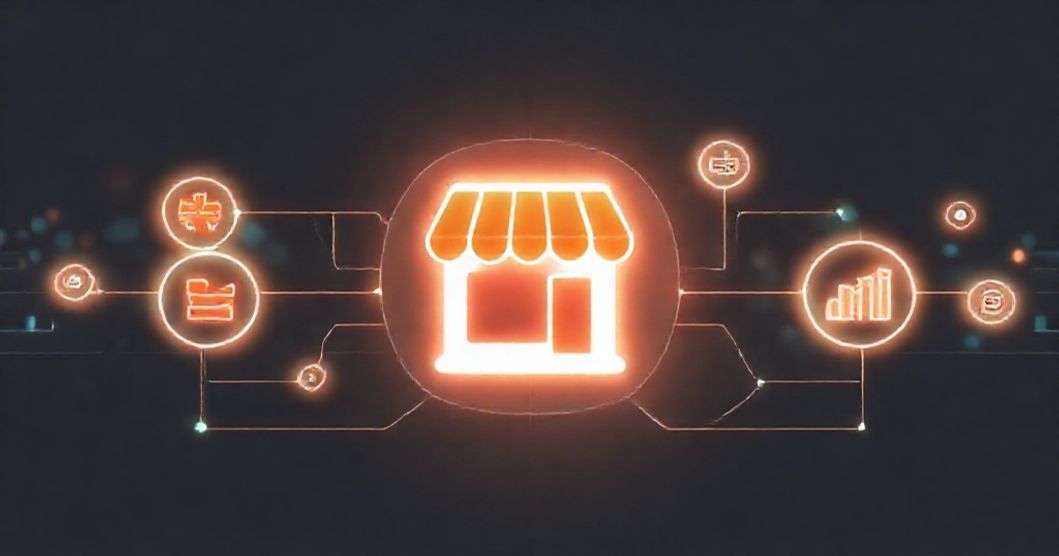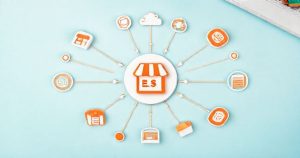Etsy integrations offer a powerful pathway for sellers to enhance efficiency and expand their business reach. By connecting your Etsy shop with various third-party applications, you can automate critical tasks, manage inventory more effectively, and improve the overall customer experience. These strategic connections are designed to simplify daily operations, allowing artisans and entrepreneurs to focus more on creation and less on administrative burdens, ultimately fostering sustainable growth within the competitive e-commerce landscape.
Understanding the Landscape of Etsy Integrations
Etsy integrations refer to the process of linking your Etsy store with external software, applications, or platforms. This connection allows data to flow seamlessly between your Etsy shop and other tools, such as inventory management systems, shipping providers, accounting software, and marketing platforms. The primary goal is to centralize operations, reduce manual data entry, and minimize errors, thereby creating a more cohesive and efficient selling environment for crafters and small businesses.
Optimizing Inventory and Order Management
Effective inventory management is crucial for any Etsy seller. Integrating your shop with a dedicated inventory system ensures real-time updates across all sales channels, preventing overselling and stockouts. These integrations can automatically adjust stock levels when an item sells on Etsy or another platform, providing a clear overview of available products. Furthermore, order management integrations streamline the processing of new purchases, from confirmation to fulfillment, ensuring every customer receives timely updates and their items without delay.
Enhancing Shipping and Fulfillment Processes
Shipping integrations are invaluable for simplifying the logistics of delivering products to customers. These tools often connect directly with major shipping carriers, allowing sellers to print labels, track packages, and manage shipping rates directly from a centralized dashboard. Many solutions also offer automated tracking updates to buyers, significantly reducing customer service inquiries regarding delivery status. Streamlining fulfillment not only saves time but also contributes positively to customer satisfaction and repeat business.
Integrating for Seamless Accounting and Financial Tracking
Accurate financial record-keeping is vital for business health, and Etsy accounting integrations simplify this complex task. These platforms automatically sync sales data, expenses, and payment processing fees from your Etsy shop into a chosen accounting software. This automation eliminates the need for manual data entry, reduces the likelihood of errors, and provides a comprehensive financial overview. Such integration is essential for tax preparation, budget planning, and understanding the true profitability of your creative venture.
Leveraging Print-on-Demand and Dropshipping Integrations
For sellers utilizing print-on-demand (POD) or dropshipping models, integrations are indispensable. These tools connect your Etsy shop directly with POD suppliers or dropshipping platforms, automating the order fulfillment process. When a customer purchases a customizable item or a dropshipped product, the order is automatically sent to the supplier for production and shipping. This enables sellers to offer a wider range of products without managing physical inventory, significantly scaling their offerings with minimal effort.
Boosting Customer Relationship Management (CRM)
Building strong customer relationships is key to long-term success on Etsy. CRM integrations allow sellers to manage customer interactions, track purchase history, and personalize communication. These systems can help segment customers, identify loyal buyers, and automate follow-up messages, enhancing the post-purchase experience. By centralizing customer data, sellers can gain deeper insights into buyer preferences, leading to more targeted marketing efforts and improved overall customer satisfaction.
Streamlining Marketing and Social Media Presence
Etsy integrations extend to marketing and social media tools, enabling sellers to promote their products more effectively. These integrations can automate the sharing of new listings or promotions across various social media platforms, saving valuable time. Some tools also provide analytics on marketing campaign performance, helping sellers understand which strategies yield the best results. A cohesive marketing approach, facilitated by integrations, can significantly increase shop visibility and drive traffic to listings.
The Distinct Advantages of Implementing Etsy Integrations
The strategic implementation of Etsy integrations offers numerous benefits that can profoundly impact a seller’s business. Foremost among these is enhanced operational efficiency, as automated workflows reduce the time and effort spent on repetitive tasks. This efficiency translates into significant time savings, allowing sellers to allocate resources towards product development, creative endeavors, and customer engagement. Furthermore, integrations drastically minimize human error, ensuring accuracy in inventory counts, order details, and financial records, which is critical for maintaining credibility and preventing costly mistakes.
Beyond efficiency, integrations contribute to business scalability. As your shop grows, manual processes quickly become unsustainable. Integrations provide the infrastructure to handle increased order volumes, expanded product lines, and a larger customer base without overwhelming existing resources. They also facilitate multi-channel selling, enabling sellers to manage listings and inventory across Etsy and other e-commerce platforms from a single dashboard. This consolidated approach not only broadens market reach but also provides a consistent brand experience across various touchpoints, driving growth and maximizing sales potential.
Selecting the Optimal Integration Solutions for Your Shop
Choosing the right Etsy integrations involves careful consideration of your specific business needs and goals. Start by identifying your biggest pain points: Is it inventory management, shipping logistics, or accounting? Research integrations that directly address these challenges, prioritizing tools that offer robust features relevant to your product type and sales volume. Evaluate factors such as ease of use, ensuring the interface is intuitive and requires minimal technical expertise. The learning curve for any new tool should be manageable to avoid disrupting current operations.
Compatibility with your existing systems is another crucial aspect; verify that the integration works seamlessly with your current software stack. Consider the cost implications, examining subscription models, transaction fees, and any potential hidden charges. While some integrations offer free tiers, premium features often come with a monthly fee. Finally, look for solutions that offer reliable customer support and have positive reviews from other Etsy sellers. A well-supported integration can be a long-term asset, contributing significantly to your shop’s sustained success and operational smoothness.
Navigating Common Challenges in Etsy Integration
While Etsy integrations offer significant advantages, sellers may encounter certain challenges during implementation and ongoing use. Data synchronization issues, where information does not update correctly or consistently across platforms, can lead to discrepancies in inventory or order status. To mitigate this, regularly verify data integrity and choose integrations with proven reliability and real-time syncing capabilities. Another common hurdle is the initial learning curve associated with new software, which can temporarily reduce productivity. Investing time in training and utilizing available support resources can help overcome this swiftly.
Security concerns also warrant attention, as integrations involve sharing sensitive business and customer data. Always select reputable integration providers with strong data encryption and privacy policies to protect your information. Compatibility problems, especially with older systems or highly customized shops, can sometimes arise, requiring technical assistance. Proactive research and choosing integrations designed specifically for Etsy can help prevent these issues. Addressing these challenges thoughtfully ensures a smoother integration process and maximizes the benefits derived from these powerful tools.
Conclusion: Elevating Your Etsy Business Through Strategic Integrations
Etsy integrations are not merely convenience tools; they are strategic assets that empower sellers to optimize every facet of their e-commerce business. By thoughtfully implementing solutions for inventory, shipping, accounting, and marketing, sellers can unlock new levels of efficiency, accuracy, and scalability. These powerful connections reduce manual workload, minimize errors, and free up invaluable time, allowing creative entrepreneurs to focus on their craft and customer engagement. Embracing the right integrations is a proactive step towards building a resilient, profitable, and future-ready Etsy shop, capable of thriving in a dynamic online marketplace.





